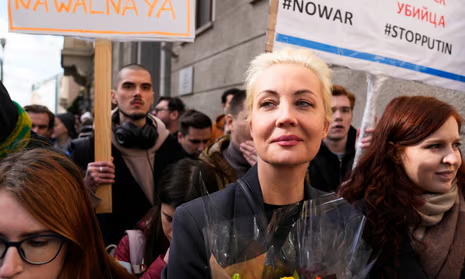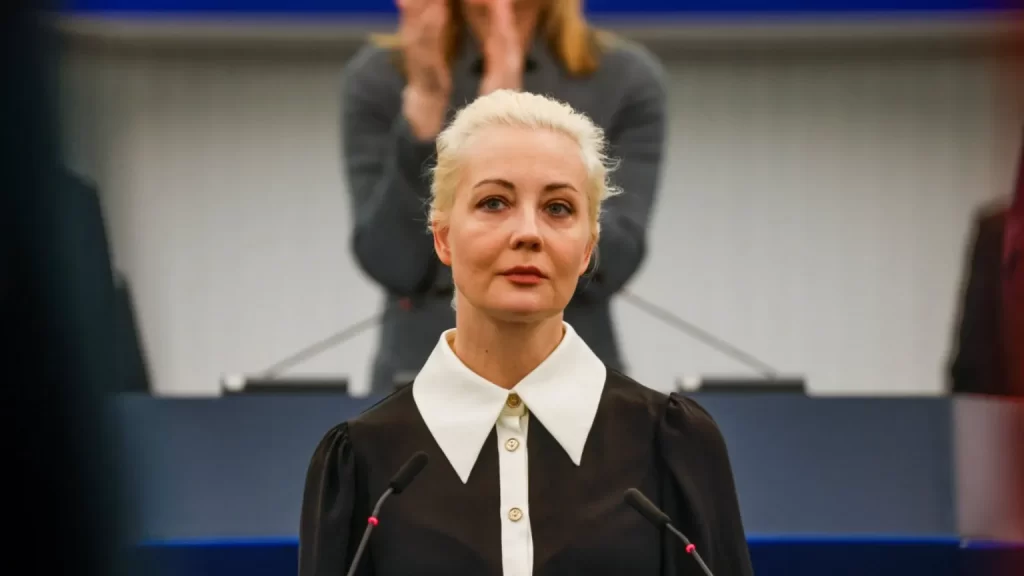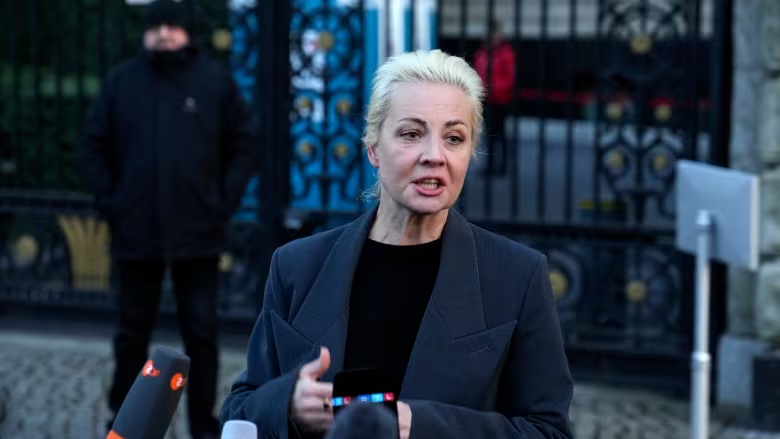A court in Moscow has issued an arrest warrant for Yulia Navalnaya, the widow of Russian opposition leader Alexei Navalny, on charges of extremism, according to state media reports. The charges against Yulia Navalnaya, who resides outside Russia, allege her “participation in an extremist society,” Tass news agency stated.

Alexei Navalny, recognized as Russia’s most significant opposition leader of the past decade, died in February in an Arctic Circle jail. While Russian authorities claim he died of natural causes, Yulia Navalnaya asserts that he was “tortured, starved, cut off, and killed” by President Vladimir Putin’s regime. Navalny had been serving a 19-year sentence on extremism charges widely regarded as politically motivated.
In response to the arrest warrant against her, Yulia Navalnaya posted on X (formerly Twitter): “When you write about this, please do not forget to write the main thing: Vladimir Putin is a murderer and a war criminal. His place is in prison, and not somewhere in The Hague, in a cozy cell with a TV, but in Russia – in the same colony and the same two-by-three-metre cell in which he killed Alexei.”

The Moscow court ruled that Navalnaya, who has vowed to continue her husband’s work, should be remanded in custody and was declared wanted. This decision means she risks arrest if she sets foot in Russia. These charges may be linked to a Moscow court ruling in June 2021, which banned organizations linked to Navalny, labeling them “extremists.”
The arrest warrant has drawn criticism from Western leaders, including US President Joe Biden. Yulia Navalnaya, a member of the US-based Human Rights Foundation, continues her work to promote and protect human rights across the globe.

This development adds another layer to the ongoing political strife surrounding the Navalny family and highlights the lengths to which the Russian government will go to suppress dissent. The international community will closely monitor the situation, anticipating further actions and responses from both Russia and global human rights organizations.



